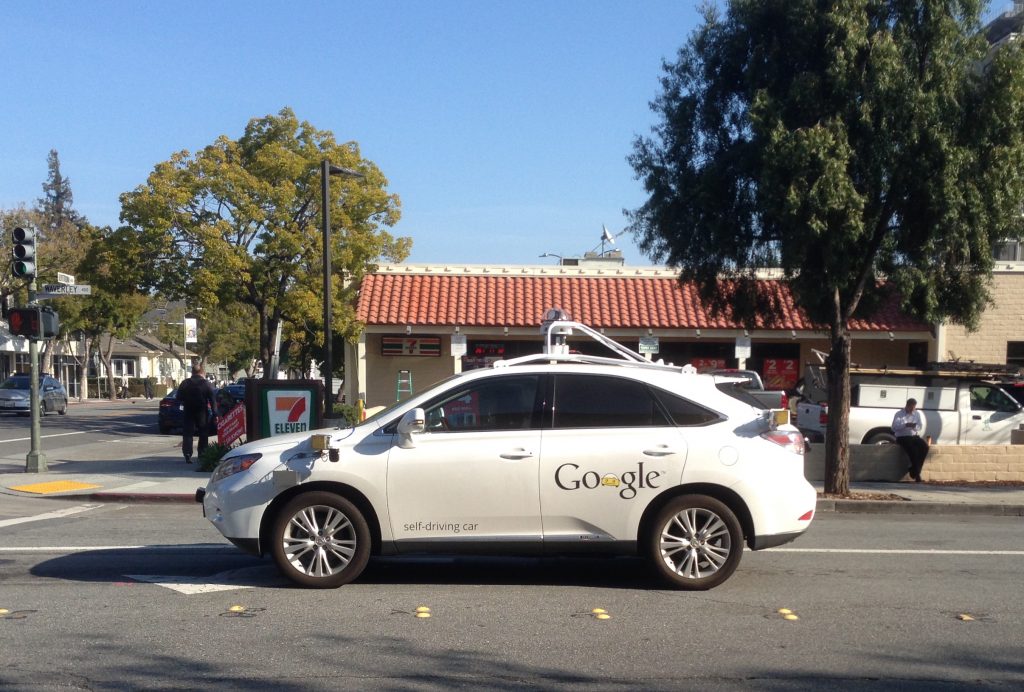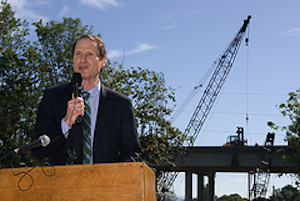
For Immediate Release
September 12, 2017
Transportation for America (T4A) and the National Association of City Transportation Officials (NACTO) issued the following response to the released Senate discussion draft of the American Vision for Safer Transportation Through Advancement of Revolutionary Technologies (AV START) Act from Chairman John Thune (SD) and Senator Gary Peters (MI).
We support the deployment of automated vehicles (AVs) and are pleased to see Congress supporting the effort of automakers to test and improve this technology. The best way to do this is to ensure that the testing is done with full transparency and in cooperation with the cities and states that own and manage the roads on which AVs are operating. Sadly, this legislation does not do that.
Protecting public safety is the fundamental role of government and has been the stated priority of the Commerce Committee for regulating automated vehicles, but the staff discussion draft circulated last Friday by Chairman Thune and Senator Peters puts business interests above the basic safety of Americans.
No one wants to see a patchwork of regulations that stifle innovation, but the unified federal framework is a poisoned chalice: it provides no mechanism for local, state, or even federal safety regulators to hold companies accountable for the safety of their vehicles or technology.
The bill’s requirement of a safety report is just an exercise: the draft bill actively prevents USDOT or any local government from taking any action based on a review of that data. If the safety report showed that a particular fleet of AVs was frequently blowing through red lights, even the Secretary of Transportation would have no recourse to require changes or to pull the cars from the road.
The bill strips states and local governments of the authority to manage the vehicles on their roadways and leaves them without the tools to deal with problems already arising during the testing and deployment of automated vehicles. Cities work to make streets safe places for all users and are not willing to endanger citizens for the sake of innovation with no levers of control. For example, if the safety report showed that a certain type of LIDAR system is incapable of reading a stop sign if vandalized with graffiti, or confused by bike lanes if painted a certain shade of green, state or local authorities — who own and maintain almost all roadways — would have no ability to intervene.
Automated vehicles will be deployed at the state and local level. But the draft legislation kicks cities and states to the curb by both failing to require any inclusion of state or local representatives on a new federal Highly Automated Vehicles Technical Safety Committee and by stripping away key means of local government control.
AVs should be tested in real-world situations, but proper management and public safety should be paramount. This draft legislation would put hundreds of thousands of untested vehicles on our streets without giving state and local governments critical information about where and how those vehicles are operating.
Understanding vehicle movement at the corridor level provides immense value for governments and citizens. Data on vehicle collisions and near-misses allows cities to proactively redesign dangerous intersections and corridors to ensure safety for all street users. Real-time data on vehicle speeds, travel times and volumes have the potential to inform speed limits, manage congestion, uncover patterns of excessive speeds, evaluate the success of street redesign projects and ultimately improve productivity and quality of life. But without access to these data, city and state governments will be blind to the impacts of emerging transportation technologies, how their construction and management of their roadways interacts with those technologies and unable to determine their own destinies.
Protecting public safety is the fundamental role of government, but this bill would actively prevent federal, state and local authorities from creating safe conditions for the testing and deployment of automated vehicles. Building public confidence should be in the industry’s self-interest and if the public doesn’t believe AVs are safe, this technology will go nowhere. It is hard to imagine how the deployment of AVs could be promoted effectively by hiding from the public their safety performance and preventing the managers of our roadways and public safety officers from having a role in managing them.
Instead of creating a framework that unlocks the transformative potential of this technology and allows cities and states to experiment and innovate to tackle their most pressing challenges, this draft puts business interests first, handcuffs transportation leaders and revokes their ability to keep our streets and residents safe by deploying automated vehicles in a thoughtful manner.
###
About T4A
Transportation for America is an alliance of elected, business and civic leaders from communities across the country, united to ensure that states and the federal government step up to invest in smart, homegrown, locally-driven transportation solutions — because these are the investments that hold the key to our future economic prosperity.
About NACTO
NACTO is an association of 55 North American cities formed to exchange transportation ideas, insights, and practices and cooperatively approach national transportation issues. The organization’s mission is to build cities as places for people, with safe, sustainable, accessible, and equitable transportation choices that support a strong economy and vibrant quality of life. To learn more, visit nacto.org.




